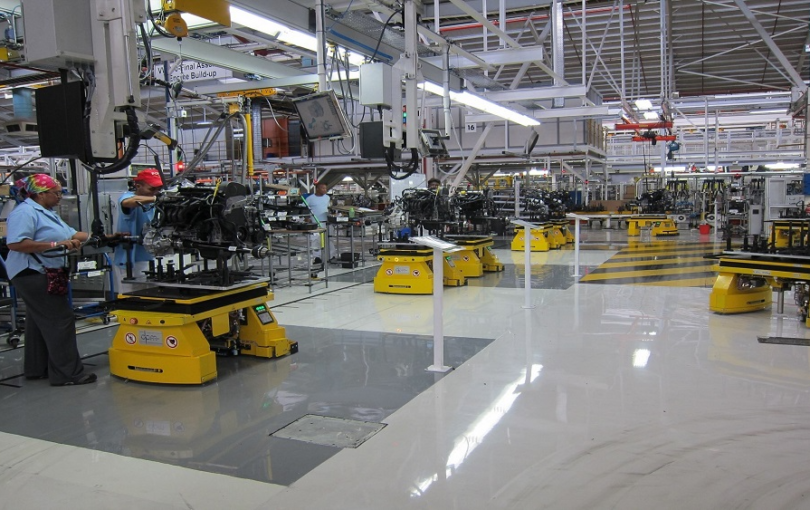The National Bureau of Statistics (NBS) has disclosed that total Company Income Tax (CIT) collections amounted to N2.47 trillion in the second quarter of 2024, marking a 150.83% growth from N984.61 billion in the previous quarter of the year.
This notable increase can be attributed to local payments contributing N1.35 trillion and foreign CIT payments reaching N1.12 trillion.
Sectors such as agriculture, financial and insurance activities, and manufacturing were among the top contributors, showcasing impressive growth rates of 474.50%, 429.76%, and 414.15% respectively.
On the other hand, sectors like household activities and extraterritorial organizations faced declines in tax contributions, with the former recording a negative growth rate of -30.22%.
Below are the top 10 sectors that paid the most CIT in Q2 2024 based on data from the NBS:
In Q2 2024, the firms in the professional, scientific, and technical activities sector paid N30.12 billion in CIT, which represents an increase of 166.82% from the N11.29 billion paid in Q1 2024 and a 243.94% increase from N8.76 billion in Q2 2023. This surge indicates a growing demand for professional services such as legal consulting, accounting, and engineering.
The construction sector contributed N32.79 billion in Q2 2024, reflecting a quarterly increase of 208.37% from N10.63 billion in Q1 2024 and a 101.12% increase from N16.30 billion in Q2 2023.
The significant year-on-year and quarterly jumps can be attributed to ongoing large-scale infrastructure projects across the country, such as road and bridge construction and urban development initiatives.
The demand for new housing, commercial properties, and industrial buildings also fuels this sector. However, challenges remain, especially concerning the rising cost of construction materials like cement and steel, which are affected by inflation and currency fluctuations.
In Q2 2024, the other service activities sector paid N40.21 billion in CIT, an increase of 251.77% from N11.43 billion in Q1 2024 and a 41.03% increase from N28.51 billion in Q2 2023. This increase suggests that more small and medium-sized enterprises (SMEs) are becoming formalized and paying taxes. However, many of these businesses still operate informally, without proper registration or access to finance, which limits their growth potential.
Public administration and defence contributed N51.99 billion in Q2 2024, a 21.80% increase from the N42.69 billion paid in Q1 2024 and a 81.68% rise from N28.61 billion in Q2 2023.
This sector’s steady growth in tax contributions may reflect enhanced government efforts to enforce tax collection within its own public institutions. The increase may also be a result of higher government spending on public security and administration due to security challenges and social programs.
The transportation and storage sector contributed N52.48 billion in Q2 2024, representing an increase of 306.19% from N12.92 billion in Q1 2024 and a 16.61% increase from N45.01 billion in Q2 2023. The rise in tax contributions is likely due to increased investments in logistics, road networks, and rail infrastructure. However, the sector faces significant hurdles, including deteriorating road infrastructure, high fuel prices, and a lack of efficient public transport systems.
The wholesale and retail trade sector, including motor vehicle repairs, contributed N74.28 billion in Q2 2024. This marks a quarterly growth of 359.61% from N16.16 billion in Q1 2024 and a 46.48% year-on-year increase from N50.72 billion in Q2 2023. This growth reflects increased consumer spending. However, the sector still grapples with currency devaluation. Also, inflationary pressures have reduced consumer purchasing power, which could affect future tax contributions.
Mining and quarrying paid N170.73 billion in Q2 2024, an increase from N80.92 billion in Q1 2024, translating to a 110.92% rise. This represents a 204.83% year-on-year growth from N56.01 billion in Q2 2023. This sector’s sharp increase is driven by the ramp-up of oil and gas extraction activities and higher demand for solid minerals. However, the sector faces ongoing challenges, such as illegal mining operations and environmental degradation. The Nigerian government is working to formalize the sector through policy reforms and stricter enforcement of mining regulations.
In Q2 2024, the information and communication sector contributed N193.65 billion in CIT, a quarterly increase of 298.97% from N48.54 billion in Q1 2024. However, this marks a 6.95% year-on-year decrease from N208.11 billion in Q2 2023. This slight decline is surprising, given the sector’s growth in demand for telecommunications services, data consumption, and digital payments. Challenges such as regulatory hurdles continue to hinder growth in this sector.
2. Manufacturing
The manufacturing sector, which paid N221.97 billion in CIT in Q2 2024, experienced a quarterly recovery of 413.91% from N43.17 billion in Q1 2024. However, it saw a 15.50% year-on-year decline from N262.73 billion in Q2 2023.
The decline could be attributed to ongoing issues such as high production costs, a volatile foreign exchange market, and chronic electricity shortages, which have affected the manufacturing process. Many manufacturers are forced to rely on expensive alternative power sources, which increases operational costs and reduces profitability.
1. Financial and Insurance Activities
The financial and insurance sector emerged as the top contributor to CIT in Q2 2024, paying N383.57 billion, representing a 429.82% quarterly increase from N72.41 billion in Q1 2024. Year-on-year, the sector saw a 53.00% increase from N250.77 billion in Q2 2023.
This sector’s performance is driven by the banking sector’s expansion and favourable government policies.







